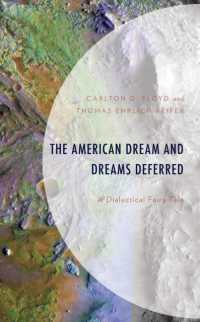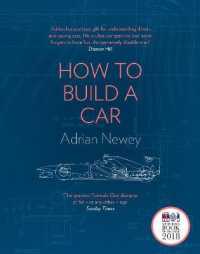- ホーム
- > 洋書
- > 英文書
- > History / World
Full Description
This book examines the creation and operation of the Extraordinary Chambers in the Courts of Cambodia (ECCC), which is a hybrid domestic/international tribunal tasked with putting senior leaders of the Khmer Rouge on trial.








